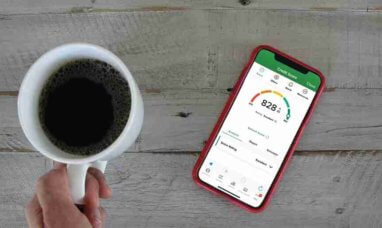Do you want to sell your car when you still have a loan? Transferring your car’s ownership requires you to pay off an outstanding loan balance on it. And if the car’s sale is not sufficient to pay the balance, you must top it up with your funds to ensure the title transfers from the lender to the buyer.
Selling a financed car is simple. All you need to do is transfer the vehicle’s title from the lender to the new buyer. If you are unlucky to have your car’s current value is less than its initial market value, you will incur extra costs when clearing off your loan.
You can also make extra cash when your car’s current value is higher than its market value at the time of purchase. Regardless, the end goal of both activities is to acquire the title, which is crucial in transferring the vehicle’s ownership.
Information You’ll Need
The most important information you will need is how much your car will cost and how to handle the car sale. Your lender can provide this information. Banks and online lenders often direct you to a buyer or financial entities that can aid you. You must complete your outstanding auto loan balance for the lender to release the car’s ownership and sign off the title.
Do not allow an auto loan to reduce your car’s worth. Check how much the vehicle costs in the current private market and determine how much you can gain from selling it yourself. You can use pricing guides like Kelley Blue Book or Edmunds for this activity. Another option is to choose the car’s trade-in value if you opt to sell it through a dealer.
CarMax and other dealers provide purchase offers that might serve as benchmarks or backup plans. Either way, you are likely to get more from a private party sale than a trade-in. Subtract the payoff amount from the determined value to see whether you have equity or an upside-down on the auto loan.
Equity is when the result is positive, and upside-down is negative. In the case of an upside-down, you will give the lender all sales money and pay for the negative equity.
Car Loans for Bad Credit and Negative Equity
Equity is the value you get when you subtract your auto loan from your car’s resale value. This amount can be either negative or positive.
-
-
-
Private Sale with Positive Equity
-
-
Instant equity auto sales provide a way of benefiting from your financed vehicle. If your private car sale has positive equity, it pays off your auto loan and earns you some profit. The buyer can pay your remaining loan balance and make a separate payment to you, or the lender can handle the sales.
If the lender is in charge, both of you will sign the title and hand it over to the buyer. The lender will then send you the sales profit.
-
-
-
Private Sale with Negative Equity
-
-
Private auto sales with negative equity result in a loss. You have to pay the lender the extra needed to top up the sale price and cover your outstanding loan balance. Negative equity sales tend to be expensive, especially if the car owner wants to purchase a new car.
Trading In a Car You Owe Money On
You can take a new auto loan to trade in your car or let the dealer do all the paperwork. If you trade in a financed car for a lease, the goal is to save as much money as possible. Check your credit score and loan preapproval to confirm the amount and interest you qualify for.
You also need to know the market value of the financed vehicle and the actual market value of the car you want to buy.
If the dealer handles all the paperwork you qualified for, you will receive credit for the new purchase when your car’s worth is higher than your debt. Otherwise, you will be rolling negative equity into a used car. This option might result in a costly car purchase.
Other Variations
Online lenders can have varying requirements for releasing the car title. Some might request the full balance payment before removing the name. If you do not have the funds to pay them, you can ask the buyer to pay the lender, who then directly mails the title to them.
Working with Buyers
The last step of the sales process is to make it official by working with buyers. It is not necessary to include your loan details on the classified car listing. But be honest with your buyers. Explain the loan situation as some may be reluctant to close the deal when they learn about the loan.
You also need to contact your bank or lender to obtain the car’s title and sign it over to the buyer. Often, this activity will require you to pay off the loan.
Also, familiarize yourself with the requirements for selling a car in your state. These details are available at the DMV, where someone can guide you on what to do.
If you are meeting with your buyer to hand them car keys and title, ensure that the meeting is in a well-lit public place. You can even take extra caution and invite a friend on the test drive. If the buyer wants their mechanic to look at the car, do not refuse. Accompany them to the inspection.
Many people have lost their vehicles when potential buyers pull similar scams. You do not want to risk your car by trusting a stranger. At the very least, consider verifying the legitimacy of your buyer.
If you are accepting cash, do so over the counter or through a money order. If possible, meet the buyer at the bank on which you can draw the payment.
After selling the car, notify your department of motor vehicles about the sale and contact your insurance provider to remove the vehicle from your cover. The failure to do so might result in the suspension of your license since the vehicle may still be in your name.
Featured Image: Twenty20








